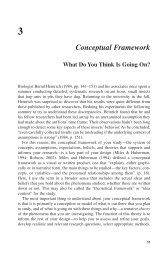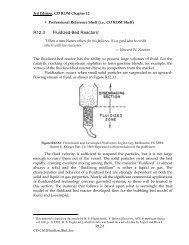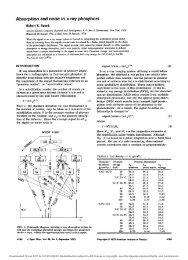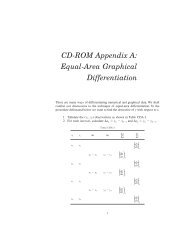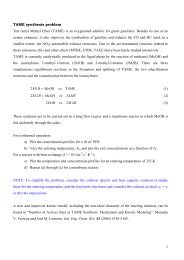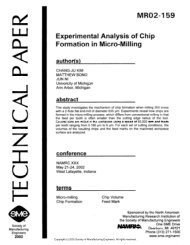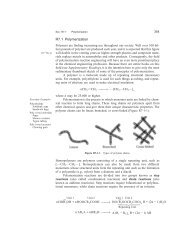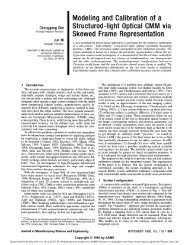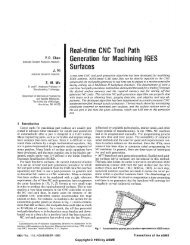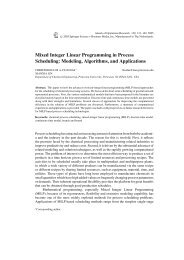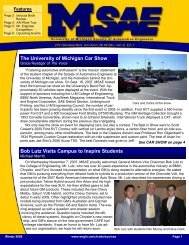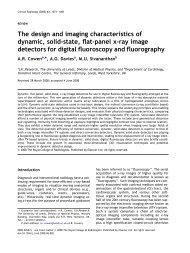Qualitative Research Basics: A Guide for Engineering Educators
Qualitative Research Basics: A Guide for Engineering Educators
Qualitative Research Basics: A Guide for Engineering Educators
Create successful ePaper yourself
Turn your PDF publications into a flip-book with our unique Google optimized e-Paper software.
• Structured: In this type of interview the interview questions are defined in<br />
advance. The answers are generally intended to be short and fit into predetermined<br />
categories. This type of interview allows <strong>for</strong> standardization across all<br />
interviews, but does not allow unexpected in<strong>for</strong>mation to be obtained.<br />
• Semi-structured: The most common type of qualitative interview, it involves<br />
pre-determined, open-ended questions, but also allows the interviewer to explore<br />
themes that emerge during the interview process. Thus, the interviewer can ensure<br />
that certain key elements are covered, but allow flexibility.<br />
• Unstructured: Unstructured interviews provide the most flexibility, but are also<br />
the most difficult to conduct. Unstructured interviews can be either <strong>for</strong>mal or<br />
in<strong>for</strong>mal. The <strong>for</strong>mal interview occurs in a setting in which there is a clear<br />
interviewer/interviewee relationship. The interviewer only has a few, “grand tour”<br />
questions prepared in advance to guide the interview process. The interviewer acts<br />
primarily as a guide, allowing the participant to explore the areas defined by these<br />
questions. The in<strong>for</strong>mal interview typically occurs in ethnographic studies in the<br />
natural setting (e.g. a street corner, a bar, etc.). The interviewer may have general<br />
topics to explore, but there are no pre-determined questions or categories.<br />
Each of these types of interviews has its own purpose. As explained by Fontana and Frey<br />
(2005), the difference between structured and unstructured interviews is, “The <strong>for</strong>mer<br />
aims at capturing precise data of a codable nature so as to explain behavior within<br />
preestablished categories, whereas the latter attempts to understand the complex behavior<br />
of members of society without imposing any a priori categorization that may limit the<br />
field of inquiry” (p. 706). In reality, these types of interviews only represent specific<br />
points on a continuum, and the level of structure in an interview depends on the needs of<br />
the particular study.<br />
Another way of categorizing interviews is by whom is being interviewed, an individual or<br />
a group. The group interview, or focus group, can be a powerful tool <strong>for</strong> gaining<br />
in<strong>for</strong>mation not accessible in individual interviews. Quite often interactions between<br />
group members stimulate memories and ideas that would not have surfaced in an<br />
individual interview (Fontana & Frey, 2005). Group interviews can be especially useful<br />
<strong>for</strong> making apparent the views, perceptions, and motivations of the participants (Punch,<br />
1998). However, there are some pitfalls inherent in the group interview. These include:<br />
some members of the group may dominate the conversation; some members may be<br />
reluctant to participate in the conversation; and there is the potential <strong>for</strong> “groupthink” to<br />
occur, which limits the in<strong>for</strong>mation that is obtained (Fontana & Frey, 2005). From the<br />
interviewer’s standpoint, the group interview is more difficult to conduct than the<br />
individual interview and requires more practice and experience.<br />
Interview Questions<br />
In preparing <strong>for</strong> an interview, it is important to develop a set of interview questions (often<br />
called an interview guide or protocol) that is consistent with the type of interview you<br />
intend to conduct and that will result in data that will answer your research questions.<br />
There are several types of questions that have varying levels of specificity. Grand tour<br />
24




